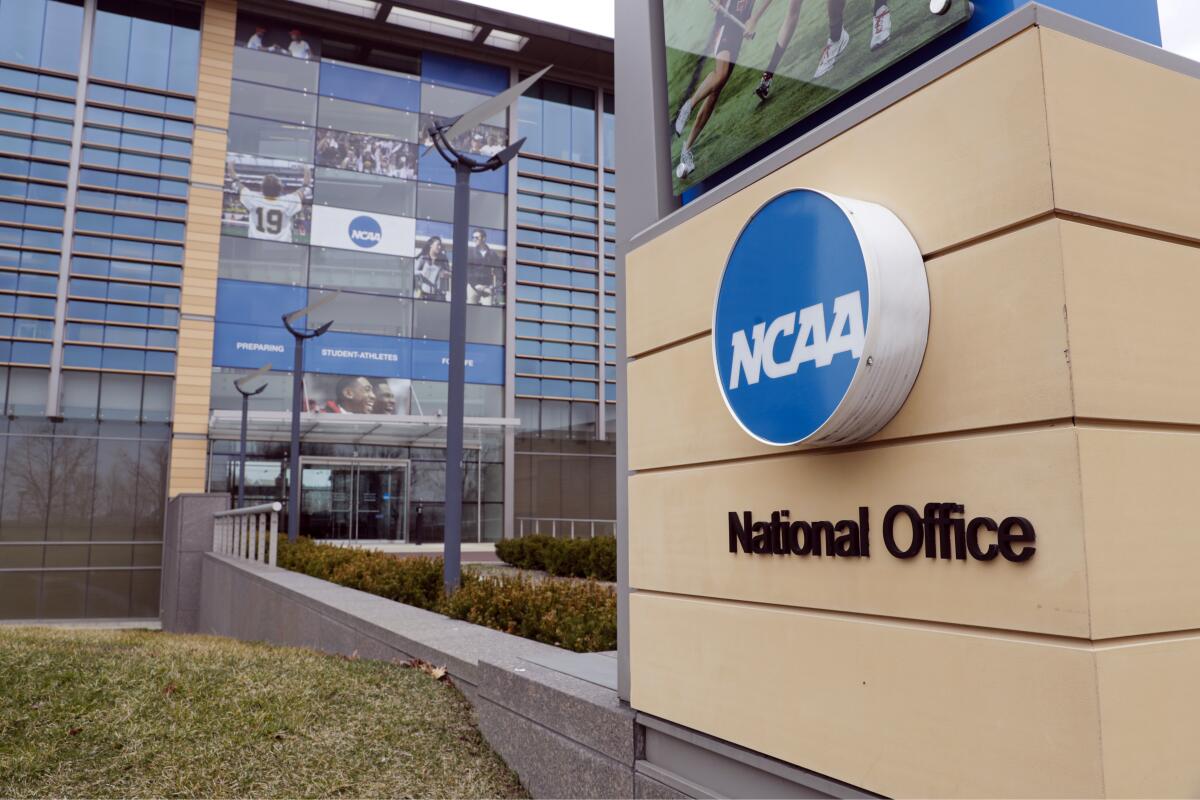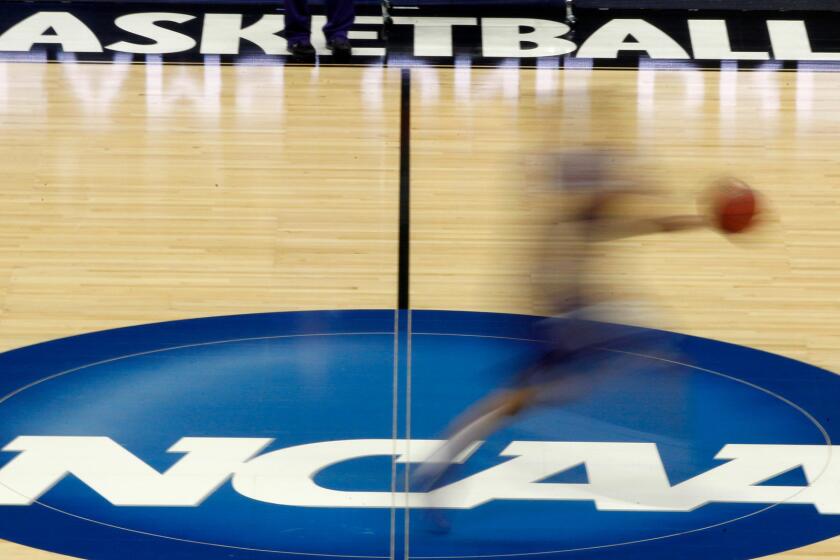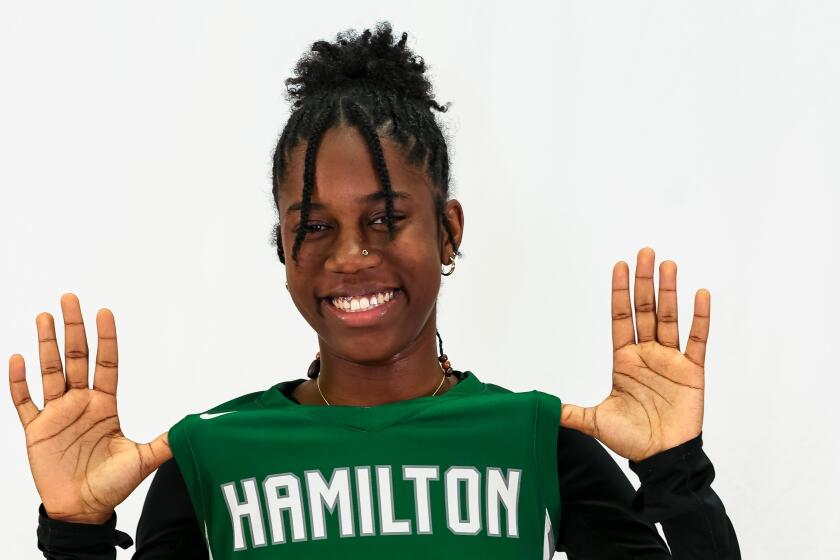Lawsuit accuses NCAA of not addressing violence against women by male athletes

The NCAA is facing a federal lawsuit accusing the organization of failing to address gender-based violence by male athletes against female students at colleges and universities.
Plaintiffs in the suit, filed this week in U.S. District Court in Michigan, include women who have been athletes at Michigan State, Nebraska and an unidentified America East school. Other plaintiffs have been students at Michigan State or Nebraska.
“Defendants routinely issue harsh punishments against student-athletes who accept payments in exchange for use of their likenesses, or who accept free meals, but they have no specific penalty for student-athletes who commit sexual assault,” the suit says. “Defendants have repeatedly and persistently failed to take any meaningful action to mitigate the severe issue of sexual misconduct perpetrated by male student-athletes against women at their member institutions.“
A Nebraska spokeswoman said Thursday the school received a copy of the lawsuit against the NCAA and cannot comment on pending litigation. A message was left with the NCAA seeking comment.
A former track athlete at Michigan State, a former volleyball player at Nebraska and a swimmer at an America East school are among the plaintiffs.
College athletes could be compensated for endorsements, social media influencing, personal appearances in plan supported by NCAA Board of Governors.
The lawsuit accuses the defendants of negligence, intentional infliction of emotional distress, negligent infliction of emotional distress, negligent supervision, fraud, breach of contract with student-athletes and breach of contract with non-student athletes.
The suit accuses a men’s track athlete at Michigan State of rape in 2017, and it accuses football players at Nebraska of rape in 2018 and 2019 and of nonconsensual groping in 2019. It also accuses a Nebraska athlete of rape in 2015, and a men’s basketball player at the America East school of rape in 2019.
The suit includes allegations of rape against three Michigan State basketball players in 2015. The woman who made those allegations spoke about them last year and filed a lawsuit in 2018.
The lawsuit against the NCAA alleges that after the female track athlete at Michigan State was raped by a member of the men’s team, she reported the rape to an assistant coach, who told her “if she pursued any claims against (the man), no one would like her, and that because (she) is ‘pretty,’ she would become a ‘distraction.’”
The suit says members of the men’s track team threatened her if she pursued charges. The suit says the woman was removed from the sprint squad so she would not be around the man she said raped her.
The female track athlete also filed her own suit against Michigan State. The school would not comment on the suit against the NCAA, while spokeswoman Emily Guerrant said it would be inappropriate to comment about the suit against MSU.
Maggie Haney, a former U.S. Olympic gymnastics coach, has been suspended for eight years for verbally and emotionally abusing athletes.
“That said, we take allegations of sexual misconduct and retaliation very seriously, and our Office of Institutional Equity reviews all allegations it receives,” she said. “In the last several years, MSU has taken significant steps to increase resources for survivors, to revise and to educate the campus community on our policies, as well as to further its prevention efforts.”
The lawsuit against the NCAA says the swimmer at an America East school was raped by a basketball player last year, and that the swimmer’s mother was told by an athletics employee that a formal Title IX investigation would result in an immediate suspension of the basketball player, pending the outcome of the investigation.
According to the complaint, the athletics employee said an informal Title IX resolution process could not result in the player being suspended “because it `wouldn’t be fair to other players’ and it ‘would have a negative impact on the community’ who attended games expecting to see (him) play.”
The woman did not want to initiate the formal Title IX investigation because she feared retaliation, the suit says. In January, she learned the school was going to be running an ad featuring the basketball player to promote the athletic department.
The America East Conference said it doesn’t comment on legal matters.
More to Read
Go beyond the scoreboard
Get the latest on L.A.'s teams in the daily Sports Report newsletter.
You may occasionally receive promotional content from the Los Angeles Times.











